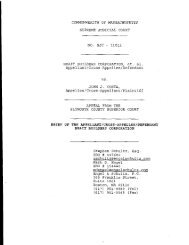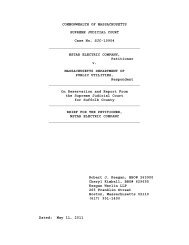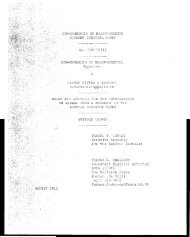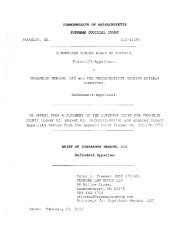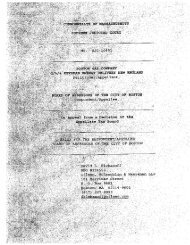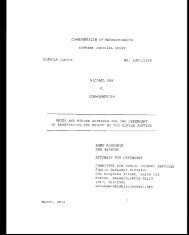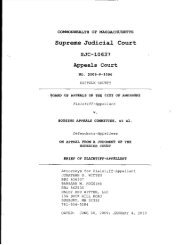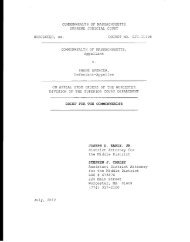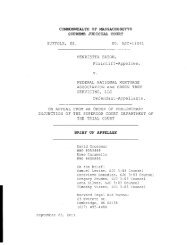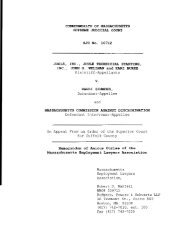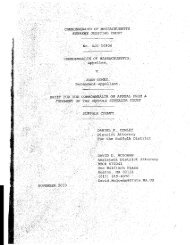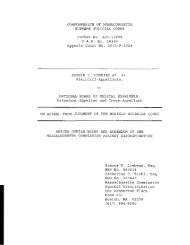463 Mass. 353 - Appellee Commonwealth Brief - Mass Cases
463 Mass. 353 - Appellee Commonwealth Brief - Mass Cases
463 Mass. 353 - Appellee Commonwealth Brief - Mass Cases
Create successful ePaper yourself
Turn your PDF publications into a flip-book with our unique Google optimized e-Paper software.
Ronald Mendes is in error when he contends, based<br />
upon the improper conflation of harmless error analysis<br />
with the question of whether the <strong>Commonwealth</strong> has<br />
offered sufficient evidence to survive a motion for<br />
required finding of not guilty, that reviewing courts<br />
like this court should not even consider the evidence<br />
as to the composition of the substance that was<br />
admitted during the defendant's case in chief, and<br />
should not consider even the defendant's own testimony.<br />
(See RonM.Br. 39). Ronald Mendes contends, in<br />
substance, that this is because "it is impossible to<br />
say" (supposedly), on the bare appellate record,<br />
"whether the defendants would have testified ... had the<br />
certificates been properly admitted through the<br />
analysts' testimony." (See RonM.Br. 39).<br />
This is not the correct legal standard. First of<br />
all, this approach would effectively jettison at least<br />
two of the six Degraca factors: "the premise of the<br />
defense" and "whether the erroneously admitt'ed evidence<br />
was merely cumulative of properly admitted evidence."<br />
Second, it would create an approach that would<br />
establish a virtually insurmountable burden on the<br />
<strong>Commonwealth</strong>. It would only be in a case like this<br />
where such a burden can be carried, a case where<br />
31



